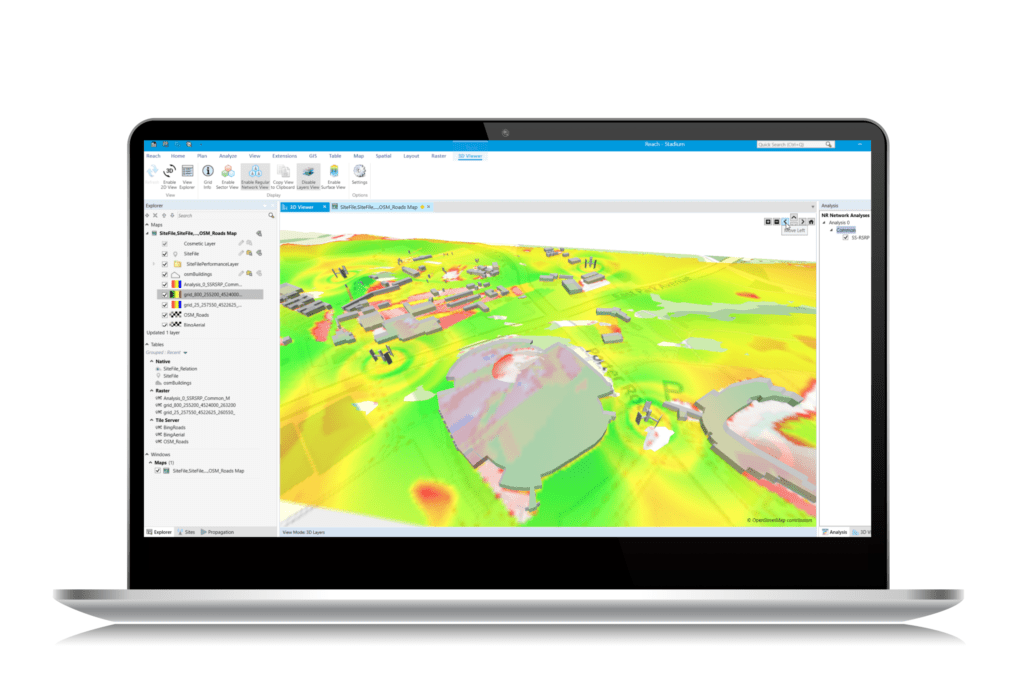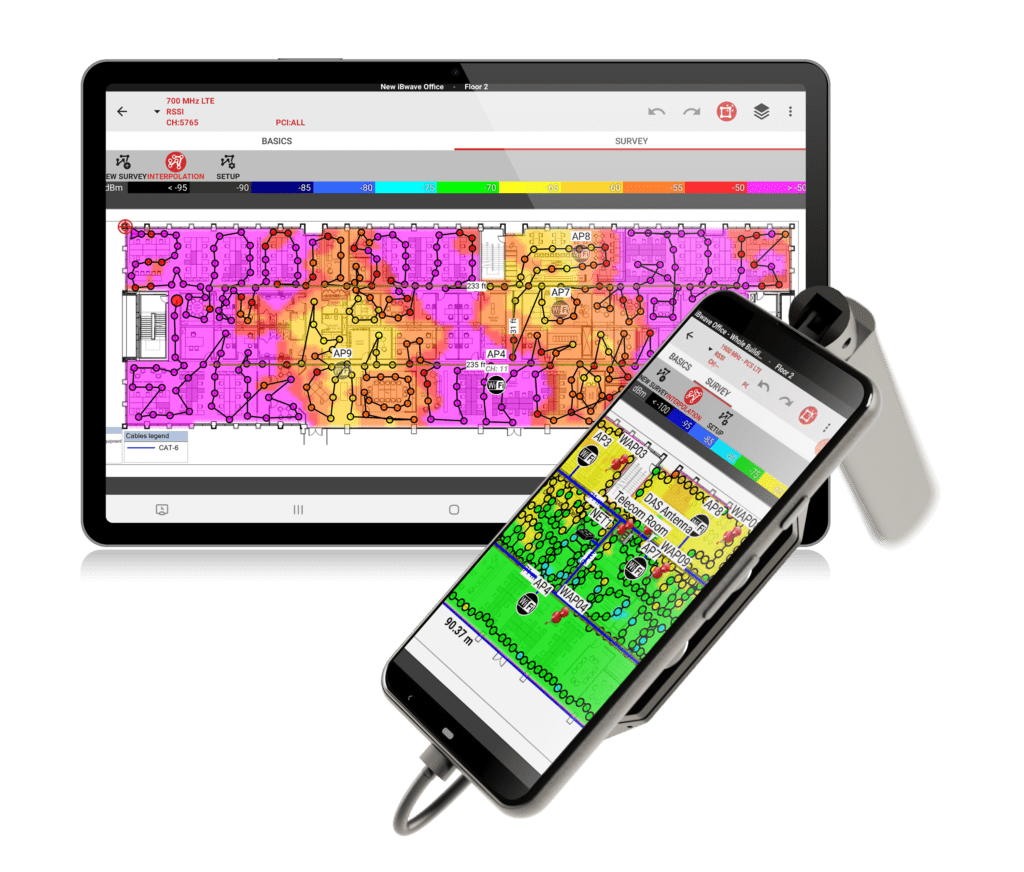The Role of Private Wireless Networks in the Energy Industry
Share

The energy and utility sectors occupy a unique position in the global landscape, serving as the bedrock of national infrastructures while demanding unparalleled levels of communication reliability, security, and uptime. These industries, encompassing everything from electricity and gas distribution to renewable energy generation, are characterized by critical requirements that necessitate robust communication networks. Amidst this backdrop, the deployment of private wireless networks has emerged as an essential element, reshaping how energy operations are conducted and monitored.
Navigating the Landscape of Energy Communication
Unlike many other industries, energy and utility companies have long cultivated sophisticated network infrastructure and internal expertise. With a historical focus on low latency demands and stringent reliability requirements, these sectors have often demanded 99.9999% uptime (up to six or seven nines of reliability).
Their networks can endure life cycles of 20-30 years, covering large geographical areas and even entire nations. These networks are designed to be resilient, ensuring operational continuity even in the face of adverse conditions.
The multifaceted nature of these industries, coupled with the necessity for real-time communication, has prompted the development of proprietary network infrastructures tailored to control and monitor assets, sites, and employees. Energy and utility companies are acutely aware of the need for low latency, making voice and data communication systems crucial. These networks are designed with an emphasis on redundancy, security, and resilience, with cybersecurity concerns taking center stage.
The Era of Convergence: Private Networks for Energy and Utilities
In recent years, a confluence of factors has led to the convergence of wireless networks and the energy and utility sectors. This convergence is marked by two critical shifts:
- Standardization of Wireless Technologies: With the widespread adoption of 4G and 5G cellular technologies, wireless networks have become more accessible beyond traditional mobile network operators (MNOs). Energy and utility companies are increasingly inclined to establish their own private networks, giving them greater control and ownership over their communication infrastructure.
- Transformation of Energy Assets: The energy landscape is undergoing a transformative shift driven by decentralization, data-driven operations, and interconnectedness. This transformation necessitates enhanced connectivity to enable real-time monitoring, control, and data collection across distributed assets.
The Value of Private Networks for Energy and Utilities
The growing demand for private networks in the energy and utility sectors is driven by a series of overarching changes, each elevating the need for enhanced connectivity, control, and information flow:
- Infrastructure Modernization: Modernizing aging infrastructure with private networks facilitates real-time data collection, control, and flexibility. This allows for efficient asset management, automation, and streamlined repair and restoration processes, reducing downtime and enhancing resource allocation.
- Employee Safety and Productivity: In hazardous environments, private networks significantly improve the safety of utility workers. They offer robust voice and video communication capabilities, ensuring seamless communication even in remote or challenging locations. Access to enterprise applications further enhances productivity by providing critical on-site information.
- Climate Change and Decarbonization: The transition towards sustainable energy practices and the reduction of carbon emissions demands agile energy infrastructure. Private networks play a crucial role in supporting new methods of energy generation and storage, often in remote areas, by providing essential connectivity for real-time monitoring and control. This leads to optimized energy production and grid management, contributing to more sustainable operations.
- Cybersecurity: Private networks come with enhanced security features and customization options. Energy and utility companies can implement stringent cybersecurity measures, ensuring the integrity of their critical operations and safeguarding sensitive data.
- Adverse Weather and Disasters: With the increasing frequency of extreme weather events, private networks bolster observation capabilities, network resilience, and critical communication systems. During disasters, these networks enable quicker response times, efficient coordination of resources, and improved situational awareness, ultimately minimizing the impact of adverse events.
- Cost-Efficiency: In the long run, private networks can prove cost-effective for energy and utility companies. They allow for precise resource allocation and streamlined processes, reducing operational costs and improving overall efficiency.
The Importance of Network Planning in the Energy Sector
In the energy sector, where uninterrupted operations are crucial, private wireless networks have emerged as essential communication lifelines. However, their true potential lies in tailored network design, a cornerstone of their efficacy.
Designing Networks for Energy Excellence
Customized network design holds immense value for the energy sector, delivering benefits that align with its distinct needs:
- Optimized Resource Allocation: Customized network design in the energy sector allows for precise resource allocation, optimizing spectrum utilization and hardware placement. This strategic approach enhances cost-effectiveness and ensures efficient energy operations.
- High reliability: Tailored network design considers challenging terrains and remote locations typical of energy facilities. Careful infrastructure planning, including access point and repeater placement, guarantees high reliability of the network functionality, even in remote areas.
- Efficient Issue Resolution: Customized network design expedites issue identification by strategically placing monitoring and diagnostic tools throughout the network. This proactive approach minimizes downtime, preserving energy operations’ efficiency.
- Enhanced Operational Performance: Tailored design optimizes network performance, ensuring consistent, high-quality connectivity. This reliability is vital for real-time energy management systems, enabling seamless monitoring and control of critical infrastructure.
iBwave: Elevating Energy Network Design
iBwave’s innovative solutions enhance energy network design by offering a range of capabilities:
Unmatched Prediction Accuracy: iBwave ensures the highest prediction accuracy, a cornerstone of reliable energy communication. You can use either iBwave Private Networks for designing Private LTE, 5G, and Wi-Fi together or our legacy best-in-class software, iBwave Design, for more complex venues and advanced features.
Versatile Network Integration: iBwave seamlessly caters to Private LTE, 5G, and Wi-Fi networks, addressing multifaceted connectivity needs in the energy industry.

Tailored Indoor/Outdoor Design for Energy Excellence: Our outdoor network planning solution, iBwave Reach, seamlessly integrates with iBwave Design to streamline campus network design, optimizing coverage for larger facilities with indoor and outdoor operational spaces that both require seamless connectivity. It leverages macro data for effective coverage planning, ensuring that all your sites are properly covered to maintain 100% uptime and operational reliability.

Seamless and Accurate On-Site Surveying: iBwave Mobile Survey, paired with the Epiq PRiSM scanner, allows you to survey and validate LTE, 5G, or Private Networks with precision and efficiency, saving you both time and costs. Unlike traditional scanners, the iBwave survey solution is lightweight, weighing under 6 ounces, and is very easy to use. There’s no need to lug around heavy, cumbersome equipment that’s difficult to operate. Just easy and cost-effective surveying.
If you want to go one step further, use iBwave Mobile Planner to start the network design on-site, using automatic access point placement to validate candidate locations as you go.

By leveraging iBwave’s solutions, energy companies elevate accuracy, streamline operations, and establish robust private networks aligned with industry-specific needs.
Conclusion
Deploying private wireless networks within the energy sector is imperative for ensuring reliable and secure communication vital to operational success. These networks offer unprecedented control, low latency, and resilience, tailored to the industry’s unique demands. Network planning and design play a pivotal role, optimizing resource allocation, ensuring uninterrupted functionality, expediting issue resolution, and enhancing overall operational performance. By combining private networks’ potential with meticulous design, the energy sector fortifies its foundation, guaranteeing efficient, secure, and uninterrupted communication vital for powering the future.
If you want to learn more about private networks for Utilities and Energy Companies, read our full eBook!

Check out our blog for more tips and topics about wireless networks and their planning!
- Private LTE/5G vs. Wi-Fi: Which is Right for Your Enterprise? - January 6, 2025
- Revolutionizing Industrial Connectivity: The ROI Behind Private 5G in Manufacturing - October 24, 2024
- The Role of Private Wireless Networks in the Energy Industry - August 1, 2024


















